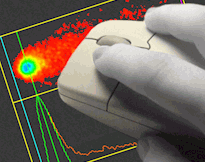Vitamin D & DNA damage - is there a connection?
- Details
- Created: Wednesday, 25 January 2017 08:48
Recently, a global team of experts (from The University of Oslo, Norway, The Hong Kong Polytechnic University & The Chinese University of Hong Kong) have been investigating “Vitamin D and oxidation-induced DNA damage: is there a connection?”
As background information to this investigation, the scientists reported the following facts:
•Oxidation-induced damage to DNA can cause mutations, phenotypic changes and apoptosis. Agents that oppose such damage offer potential therapies for disease prevention.

•Vitamin D administration reportedly lowered DNA damage in type 2 diabetic mice, and higher DNA damage was reported in mononuclear cells of severely asthmatic patients who were vitamin D deficient.
•Vitamin D deficiency (plasma 25(OH)D < 50 nmol/l) is highly prevalent worldwide, and association with DNA damage has high potential importance and impact in regard to the future health of vitamin D deficient young adults.
The investigators hypothesized that: lower vitamin D status associates with higher oxidation-induced DNA damage.
In this study, oxidation-induced DNA damage in peripheral lymphocytes of 121 young (18-26 years) adults was measured using the formamidopyrimidine DNA glycosylase (FPG)-assisted comet assay. The researchers used a Leica CTR6500 fluorescent microscope and LAS-AF scanning software (Leica Microsystems Ltd., Wetzlar, Germany) and the Comet Assay IV Lite scoring system (Perceptive Instruments Ltd., Bury St Edmunds, UK). For each sample, 50 nucleoids at random were scored in each of two gels treated with FPG, and in each of two gels treated, in parallel, with buffer. The difference between the average DNA score (as %DNA in comet tail) of (i) the 100 buffer-treated nucleoids (a measure of pre-existing single strand breaks) and (ii) the 100 FPG-treated nucleoids (a measure of pre-existing plus single strand breaks created by the action of FPG at oxidation-induced lesions) of each sample was taken as the measure of oxidation-induced DNA damage.
In addition to the comet assay, plasma 25(OH)D was measured by liquid chromatography with tandem mass spectrometry (LC-MS/MS).
Correlational analysis was performed between 25(OH)D and DNA damage. Differences in DNA damage across tertiles of 25(OH)D were explored using analysis of variance. DNA damage in those with 25(OH)D <50 nmol and ≥50 nmol/l was compared using the unpaired t-test.
Mean (SD) DNA damage (as %DNA in comet tail) and plasma 25(OH)D were, respectively, 18.58 (3.39)% and 44.7 (13.03) nmol/l. Most (82/121; 68%) of the subjects were deficient in vitamin D (25(OH)D <50nmol/l).
No significant correlation was seen between 25(OH)D and DNA damage (r = -0.0824; P > 0.05). No significant difference was seen across 25(OH)D tertiles: mean (SD) %DNA in comet tail/25(OH)D nmol/l values in lowest, middle and highest tertiles were, respectively, 18.64 (3.30)/31.6 (4.4), 18.90 (3.98)/42.9 (3.5), 18.19 (2.84)/59.9 (8.5), nor across the binary divide: 18.73 (3.63)% in <50nmol/l group vs. 18.27 (2.84)% in the ≥50 nmol/l group.
The scientists reported that no association between vitamin D and oxidation-induced DNA damage was observed, but vitamin D deficiency was highly prevalent in the young adults studied. Based on this investigation, it was concluded that an ameliorative effect of correction of vitamin D deficiency on DNA damage cannot be ruled out.
For full details and experimental information, please refer to the original publication: Vitamin D and oxidation-induced DNA damage: is there a connection? Wang EW, Collins AR1, Pang MY2, Siu PP, Lai CK3, Woo J4, Benzie IF. Mutagenesis. 2016 Nov;31(6):655-659.
